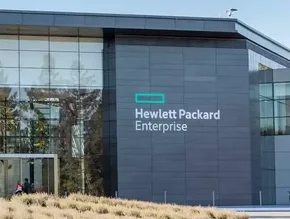Capgemini: Gen AI accelerating software-led transformations

Generative AI is accelerating transformation towards a new software-led era, with a Capgemini report seeing nearly three-quarters of businesses planning to use it to assist with software engineering in the next year.
Capgemini’s report reveals organisations expect their software-based revenue to grow to 29% by 2030, up from 7% in 2022. Software-enabled technologies such as cloud, the Internet of Things (IoT), high performance networks (5G) and AI and machine learning will be accelerating innovation and research and development (R&D) for products and services, personalised customer experiences, introducing new revenue streams and business models, and reducing costs.
Capgemini is a global leader in partnering with companies to transform and manage their business by harnessing the power of technology. With its strong 55-year heritage and deep industry expertise, the group reported global revenues of €22bn in 2022.
Generative AI as copilot
According to Capgemini, organisations across all industries are re-defining themselves as software companies and transitioning away from traditional hardware-centric business.
A quarter of businesses already identify as ‘software’ companies, with an additional 32% anticipating transitioning to software company status within the next three to five years. Capgemini also found that nearly 60% of organisations agree that software-driven transformation is now a boardroom topic, with the majority recognising it as a strategic capability.
Indeed, generative AI tools assist businesses in staying ahead of competitors, transforming business models and unlocking new value for customers.
The Capgemini report suggests that software-driven transformation is expected to deliver significant financial gains for organisations across all industries by 2030. In particular, it cites the telecom sector as leading with a predicted revenue increase of 39%, followed by automotive and banking and insurance (32%) and life sciences (31%).
As demand grows, more organisations are turning to technologies like generative AI to assist software engineers and accelerate the delivery of software code. According to the report, generative AI tools are expected to increase the time saved for software engineering from 15% to 43% over the next three years.
Additionally, seven in 10 organisations are planning to use generative AI to augment existing software engineering over the next year and expect these tools to assist in the creation of 37% of code in the next three years.
Embracing software-led digital transformations
However, despite the significant benefits of AI technology, Capgemini states that 68% of organisations remain at the early experimentation stages of software-driven transformation. Only 29% of organisations have started to scale and utilise software to drive transformation, with only 5% having implemented fully scaled initiatives.
Capgemini cites that organisations will need to ensure flexibility across various platforms. However, less than half (48%) of organisations have a highly scalable architecture, as the report highlights that nearly 40% of organisational software investment currently focuses on maintaining legacy products.
The report also suggests that talent is also crucial to software success. As 39% of organisations expect their employees to work on software solutions in the next three years, there is an ever-growing workforce skills gap. Areas lacking the most are cybersecurity and compliance (61%), AI and machine learning and deep learning (60%) and data and the cloud (57%).
“We have entered a new era of software-led business,” says William Rozé, CEO of Capgemini Engineering. “Organisations require a mindset shift if they’re to differentiate, innovate and remain competitive. Thinking must move away from using digital technologies as an add-on, or tool to fix crinkles and smooth edges.
“Instead, leaders must view software as a key strategic asset which can unlock a myriad of benefits and establish competitive differentiation. But to achieve software excellence and the gains that it has to offer – organisations will need to think holistically: from striking up strategic partnerships where necessary, to defining a clear transformational roadmap to ensure the architecture that underpins it is robust, sustainable, and scalable.
He adds: “Generative AI poses significant potential here – with the ability to vastly accelerate all endeavours.”
******
For more insights into the world of Technology - check out the latest edition of Technology Magazine and be sure to follow us on LinkedIn & Twitter.
Other magazines that may be of interest - AI Magazine | Cyber Magazine | Data Centre Magazine
Please also check out our upcoming event - Sustainability LIVE Net Zero on 6 and 7 March 2024.
******
BizClik is a global provider of B2B digital media platforms that covers executive communities for CEOs, CFOs, CMOs, sustainability leaders, procurement & supply chain leaders, technology & AI leaders, fintech leaders as well as covering industries such as manufacturing, mining, energy, EV, construction, healthcare and food.
Based in London, Dubai, and New York, Bizclik offers services such as content creation, advertising & sponsorship solutions, webinars & events.






